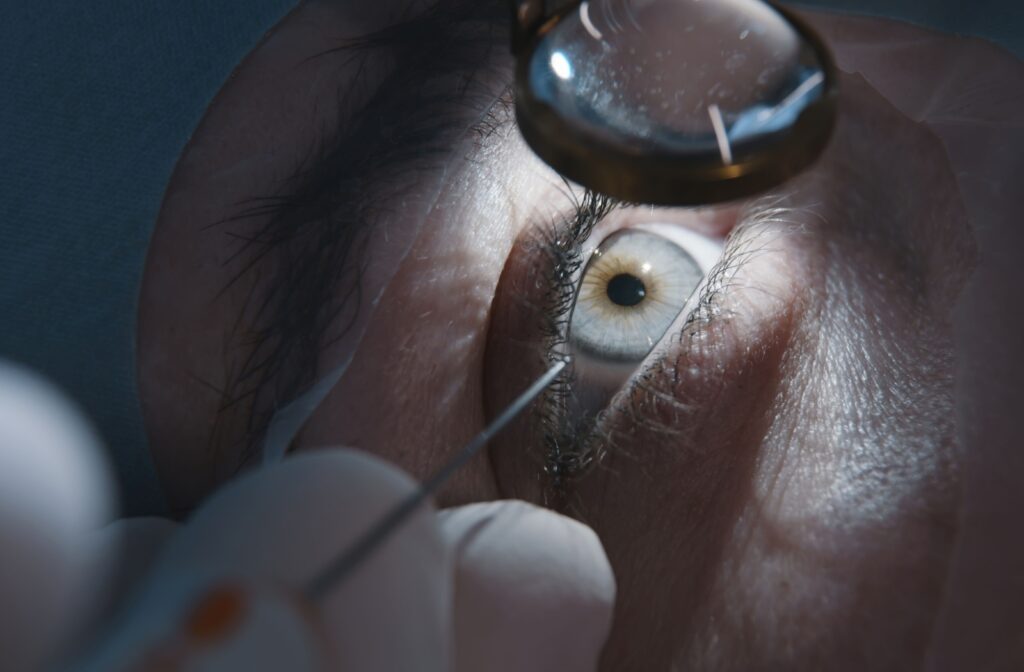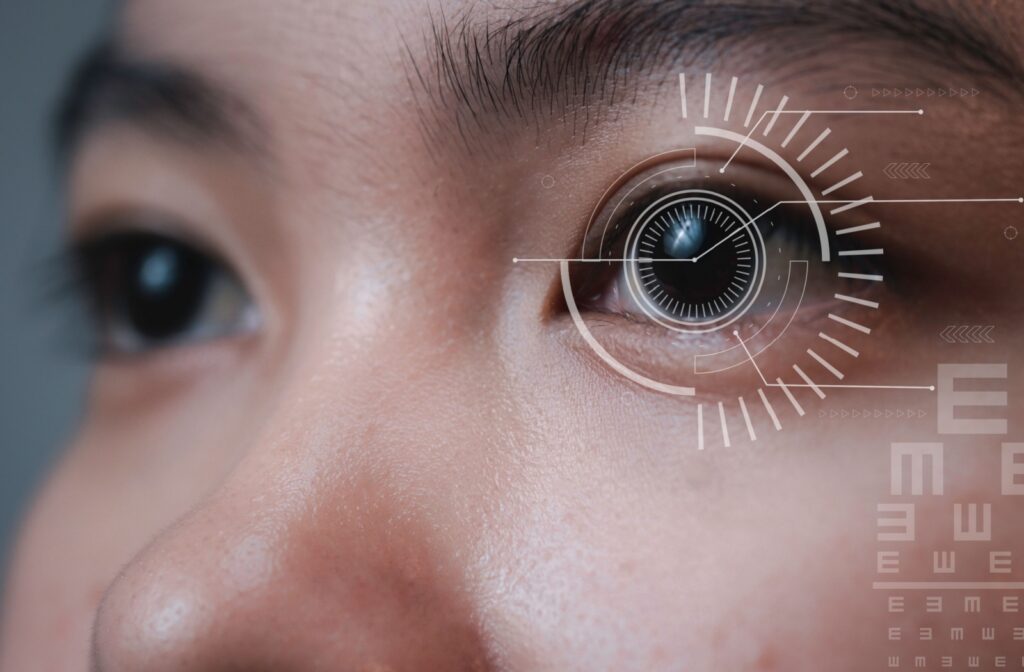When considering laser eye surgery, one of the most common questions is, “How long does the procedure actually take?” The allure of achieving clear vision without the constant need for glasses or contact lenses has many people eager to explore this popular treatment. However, time is always a concern when trying to fit something into your busy schedule.
Surprisingly, the duration of laser eye surgery is much shorter than many expect, often taking less than 30 minutes for both eyes. Recovery time may also be minimal depending on what type of laser eye surgery you get. This quick and efficient process is due to exciting advancements in ophthalmic technology.
What Is Laser Eye Surgery?
Laser eye surgery, often referred to as refractive surgery, is a common procedure designed to correct refractive errors such as nearsightedness, farsightedness, and astigmatism. It has gained popularity due to its ability to offer improved vision without needing glasses or contact lenses.
The procedure utilizes advanced laser technology to reshape the cornea, enhancing how light enters the eye and focuses on the retina. This relatively quick and safe process has made it an attractive option for those looking to reduce their dependence on corrective eyewear.
Types of Laser Eye Surgeries
There are several types of laser eye surgeries available, each with its unique approach and benefits. Here are some of the most common:
- LASIK (laser-assisted in situ keratomileusis): The most popular form, where a flap is created in the cornea to reshape underlying tissue.
- PRK (photorefractive keratectomy): An alternative to LASIK that removes the cornea’s surface layer, suitable for patients with thin corneas.
- SMILE (small incision lenticule extraction): A minimally invasive procedure that removes a small piece of corneal tissue to improve vision.
Each type has specific uses and suitability criteria. Consulting with an eye care professional can help determine which procedure aligns with your vision correction needs.
The Laser Eye Surgery Procedure
Laser eye surgery involves several stages, from pre-surgery preparation to the procedure itself and post-surgery care. Here’s a detailed look at what you can expect:
Pre-Surgery Preparation
Before undergoing laser eye surgery, patients undergo a comprehensive eye examination. This assessment evaluates the shape and thickness of the cornea, refractive errors, and overall eye health. Your optometrist will likely advise you to stop wearing contact lenses before the surgery to allow the cornea to return to its natural shape.
In the days leading up to the surgery, you may need to avoid certain medications and follow specific guidelines provided by your eye doctor. These preparatory steps are crucial for better results and minimizing potential complications during the procedure.
The Surgery Itself
The actual laser eye surgery procedure is relatively quick, often lasting only about 15 to 30 minutes for both eyes. The surgery begins by numbing your eye with eye drops. After this, the specifics may change depending on what type of surgery you’re receiving.
For example, during LASIK, a laser creates a flap in the cornea, which is then folded back to access the underlying tissue. Another laser reshapes the cornea, correcting the refractive error. Your surgeon then repositions the flap, acting as a natural bandage.
You may experience mild discomfort or a sensation of pressure during the procedure, but it’s generally tolerable.
Post-Surgery Care
Following the surgery, you should rest and avoid strenuous activities. Your doctor may prescribe eye drops to prevent infection and promote healing. Most people experience improved vision within 24 hours, although full recovery may take several weeks.
During recovery, avoid rubbing your eyes, swimming, and exposure to dust or smoke. Your eye care team should book regular follow-up appointments to help monitor healing progress and address any concerns should they pop up.
The recovery process after laser eye surgery varies. Initially, you may notice fluctuations in your vision, halos around lights, or dry eyes. These symptoms typically improve as the eyes heal.

Are You a Good Candidate for Laser Eye Surgery?
Not everyone is an ideal candidate for laser eye surgery. Several factors influence eligibility, including:
- Age: You should be at least 18 years old and have a stable prescription for at least 1 year.
- Eye health: You should have healthy eyes free from conditions like dry eyes, glaucoma, or cataracts.
- Prescription-strength: A high prescription could make laser eye surgery less effective.
- Cornea thickness: Your cornea must be thick enough to create a flap.
You also need to have realistic expectations about what laser eye surgery can do. While it can significantly improve vision, it doesn’t guarantee 20/20 vision for everyone. Some individuals may still need glasses or contact lenses for specific tasks like reading or driving at night.
A thorough consultation with your optometrist can help determine suitability and outline any potential limitations.
Your Partners in Laser Eye Surgery
Laser eye surgery has revolutionized vision correction, offering a potential solution for many people looking to leave their glasses and contacts behind.
A consultation is the first step for those considering laser eye surgery. To learn more and explore your options, contact Camarillo Vision Center. Our team is dedicated to helping you achieve the vision you’ve always dreamed of and guiding you through every step of the process.
Explore the possibilities of laser eye surgery and take the first step toward a clearer, more vibrant world. Book your consultation today!



